In 1998, and through a request made by the former President Joaquim Chissano due to its distance from the capital and therefore its difficulty in reaching, the Aga Khan Network Development (AKDN) and the Government of the Republic of Mozambique signed a Diplomatic Agreement of Co-operation for Development, laying the institutional bases for the programmatic portfolio to be implemented for the development of the Mozambicans.
555-2.jpg
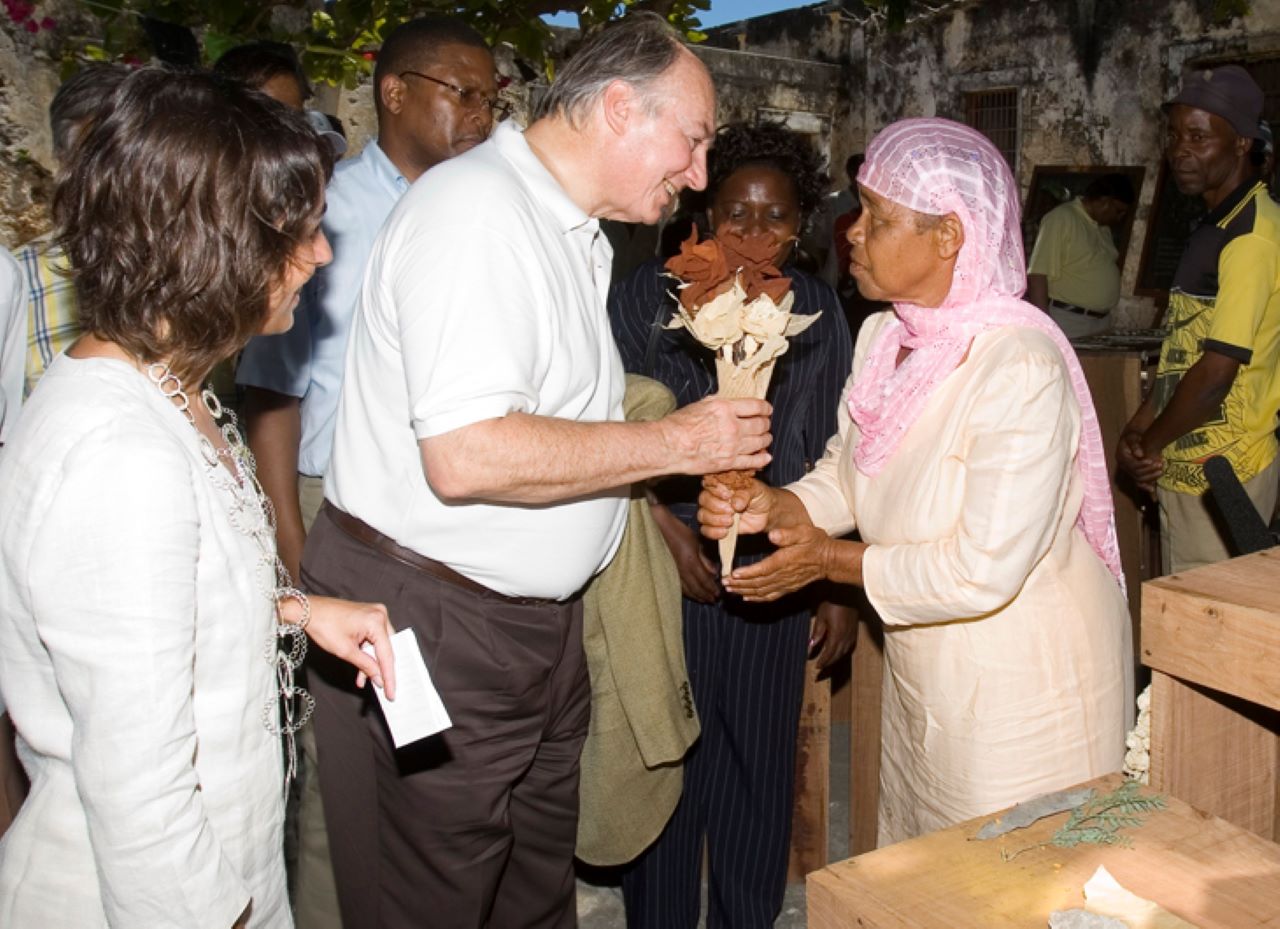
The AKDN, through its developmental agency, the Aga Khan Foundation Mozambique (AKF-M) has been operating since 2001 in Cabo Delgado Province, the most deprived province of Mozambique, and in the course of its work with communities over the years, it has guaranteed its presence in all 17 districts.
AKF-M, in partnership with the Mozambican Government at its different levels, is actively implementing its activities through its Rural Coastal Development Program (CRSP), a multi-thematic programming initiative that seeks to address the root causes of poverty and underdevelopment in northern Mozambique. The actions focus on programatic areas and sectors, such as agriculture and food security, civil society, citizenship and local governance, education from early childhood developmentto literacy and technical and vocational education, economic inclusion and the promotion of entrepreneurship, health, women's empowerment and gender issues.
AKF-M serves more than 25,000 people in Cabo Delgado province, covered by implemented activities, with the aim of contributing to improving the quality of life of the most disadvantaged communities, creating opportunities for human development. These are communities that face several challenges, with low levels of socioeconomic indicators, low levels of schooling, affecting women with greater incidence. The Province is also characterized by low agricultural production and productivity, high levels of premature marriages, early pregnancies, and high levels of malnutrition affecting mostly children.
Some of the main areas of activity of the AKF-M over almost 20 years of presence in the Province of Cabo Delgado are:
Strengthening Civil Society
Through Civil Society project initiatives, in collaboration with local governments, AKF-M often starts its relationship of strengthening and active participation of communities promoting strengthening, growth, and development at all levels, under the leadership of Committees Village Development Program (CDAs). As it recognizes the leadership and influence capacity that these community organizations have within them, AKF-M currently has a project to strengthen social cohesion in the district of Metuge.
More globally, with an impact on the national territory, AKF-M has been working to strengthen other civil society organizations, through the Juntos! Platform, which supports the strengthening of the capabilities of local CSOs using a blended learning approach, combining virtual and classroom training and learning sessions.
untitled.png

Agriculture and Food Security
Agriculture is in fact the basis of food and sustenance for the vast majority of Mozambican families. AKF-M, as a civil society organization, has been working with family producers to promote production, increase productivity in order to create surpluses that can generate higher incomes for families, and food security for communities through the adoption of improved and environmentally sustainable techniques.
Between 2013 and 2017, the Mozacaju project managed to directly reach around 5000 producers, including ofsmall, medium and largescale, in promoting cashew production.
Today, through the AMCANE project - Amendoim, Cajú e Negócios, with implementation in the provinces of Nampula and Cabo Delgado, which aims to improve and introduce new and better agricultural practices to increase the production and productivity of cashews and peanuts, the promotion of use of post-harvest technologies in the peanut culture, training service providers and extension workers in agricultural techniques and extension methodologies, aims that out of a total of 5000 producers, 1300 are certified, to reach a total production volume of 2,000 tons cashew nuts, and 1,100 tons of peanuts, 35% of which are certified organic.
caju_project.jpg
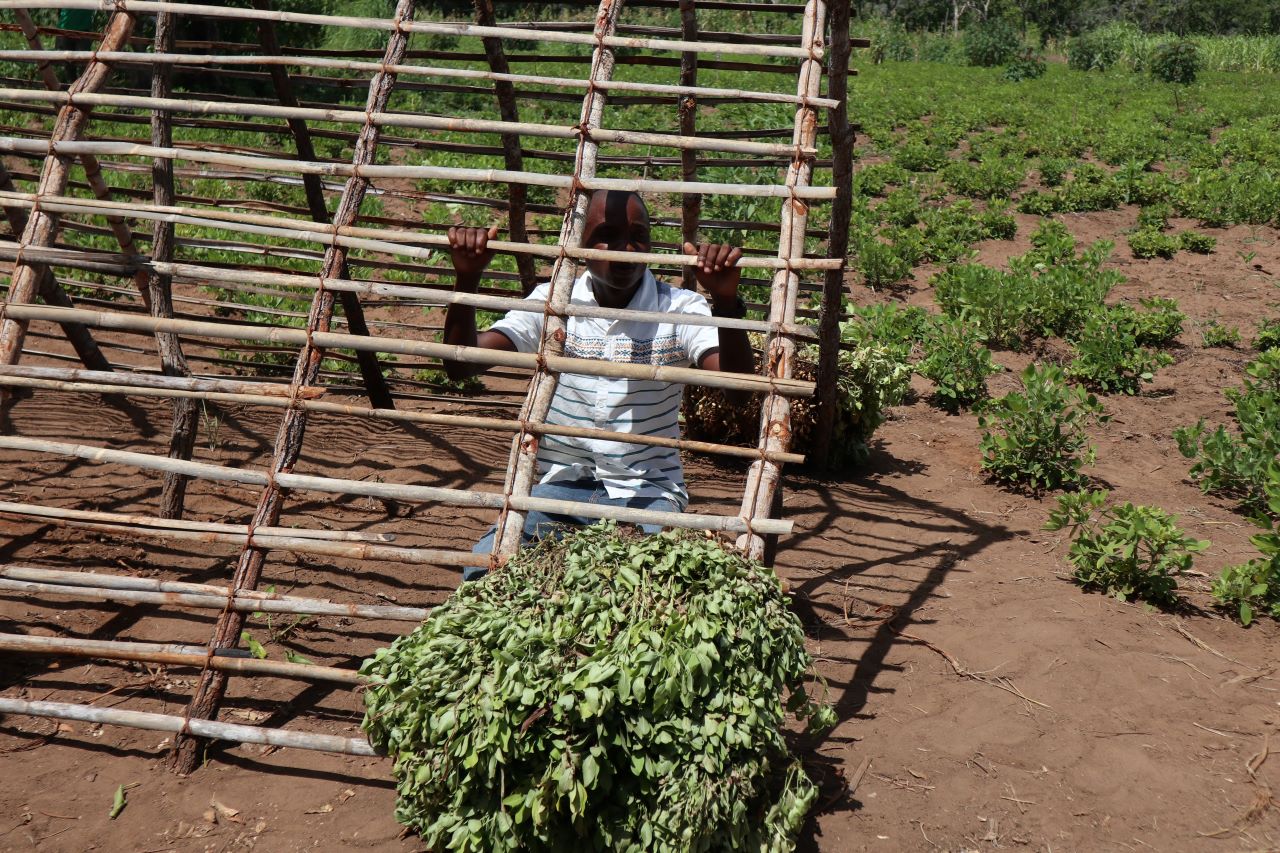
Support has also extended to market access, establishing and strengthening the connection between producers and the private sector in the process of marketing products. In order to make this process sustainable, AKF-M has encouraged the creation of sales associations and commissions in which producers have the opportunity to jointly face large markets and support each other.
For several years, one of AKF-M's flagship projects has been the Instituto Agrário de Bilibiza (IABil– Agrarian Institute of Bilibiza); as a result of the current conjecture of insecurity in the province of Cabo Delgado, with a special focus on the northern districts, this project was transferred to the now called Instituto Agrário de Ocua (Ocua Agrarian Institute), in the Chiure district, which will have around 270 high school students. Its pillars remain intact, in the sense of creating a well-established agrarian development entity in the northern region, an institution built on solid foundations, capable of generating well-trained agricultural technicians, and providing well-developed market-oriented courses, with sustainable and innovative approaches to the production, marketing and placement of products, and providing incentives for entrepreneurship initiatives.
img_4804.jpg
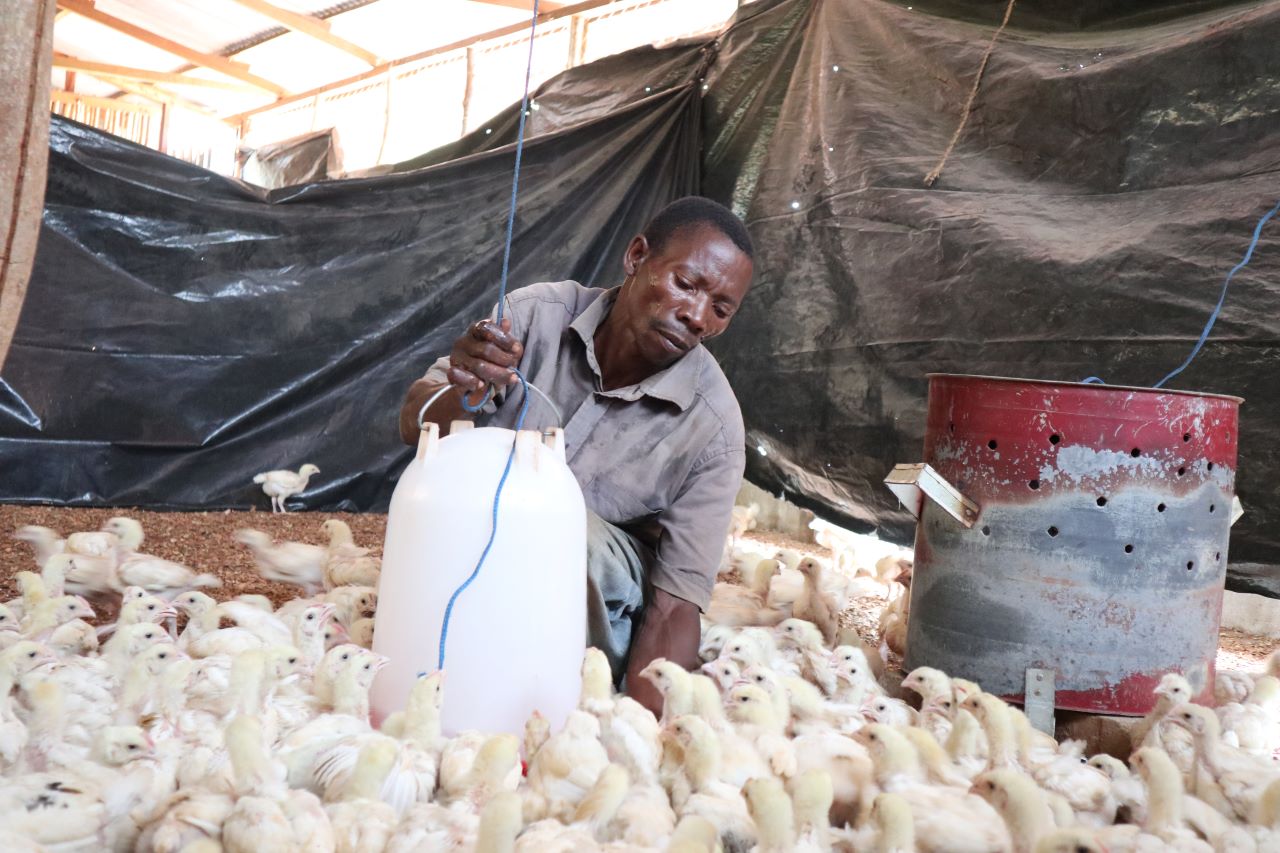
Economic Inclusion
In rural communities, access to banking services is very low, which reduces the communities' banking capacity and their savings capacity and income in the formal sector. In order to face this difficult scenario, savings groups based on the common interest of savings were created, at the community level, between producers and workers from different sectors, generally consisting of about 15 to 25 members, who by common agreement are gathers on a weekly basis to contribute to savings in a common box. Through its own methodology, which includes training sessions with the support of animated videos, and a package of 5 financial education modules, members have the opportunity to save their income, make loans, carry out their projects, to develop and improve their lives and of their families.
Economic Inclusion
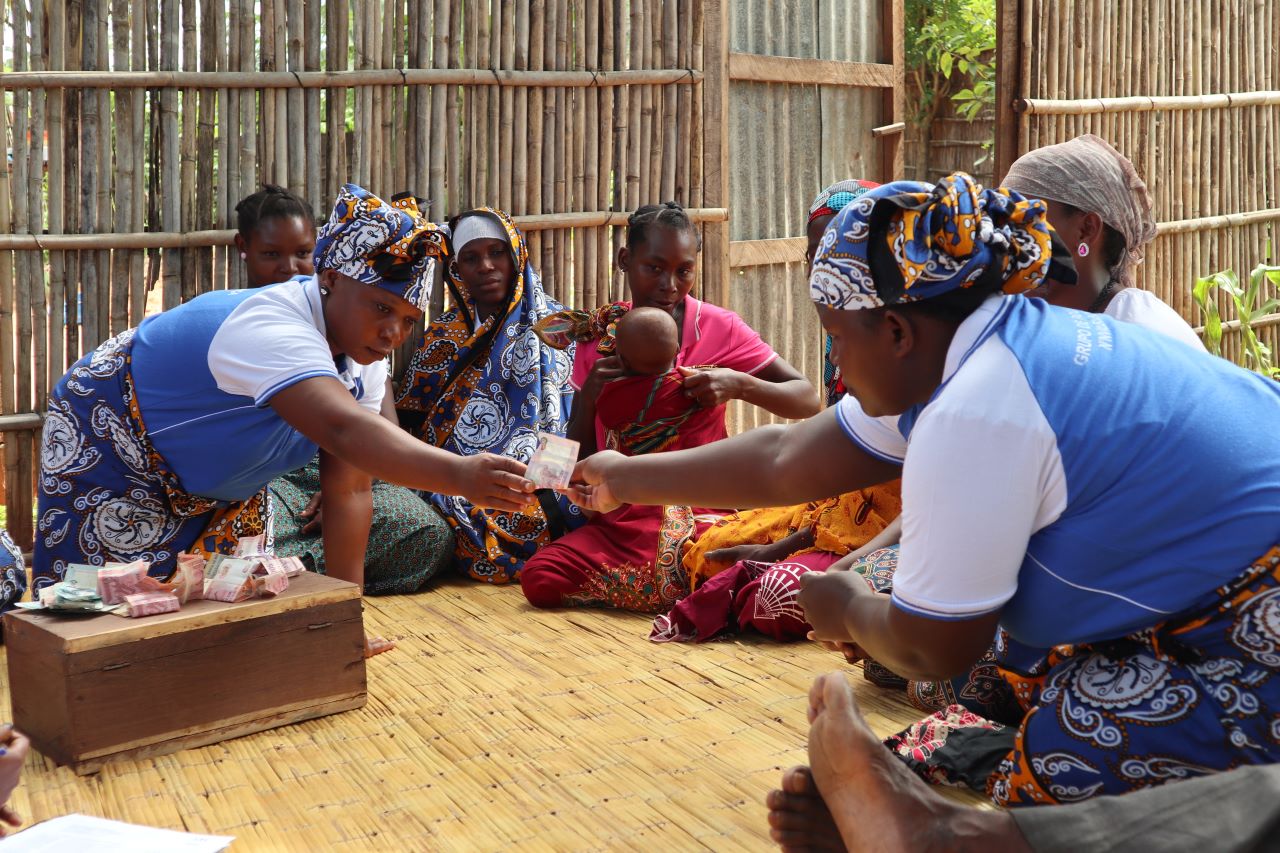
By 2019 around 370 savings groups had been created in Cabo Delgado, with 3324 members of which 60% are women.
Early Childhood Development
Recognizing the education process as one of the key drivers of development in societies, AKF-M has devoted part of its support to the integral development of early childhood education as a way of contributing to the achievement of better learning outcomes and socio-economic integration of the future adult in the community. This area involves stimulating the skills abilities of children from 0 to 5 years, while actively involving the community (family), in the domain of the importance of this knowledge for the development of their children.
ECD
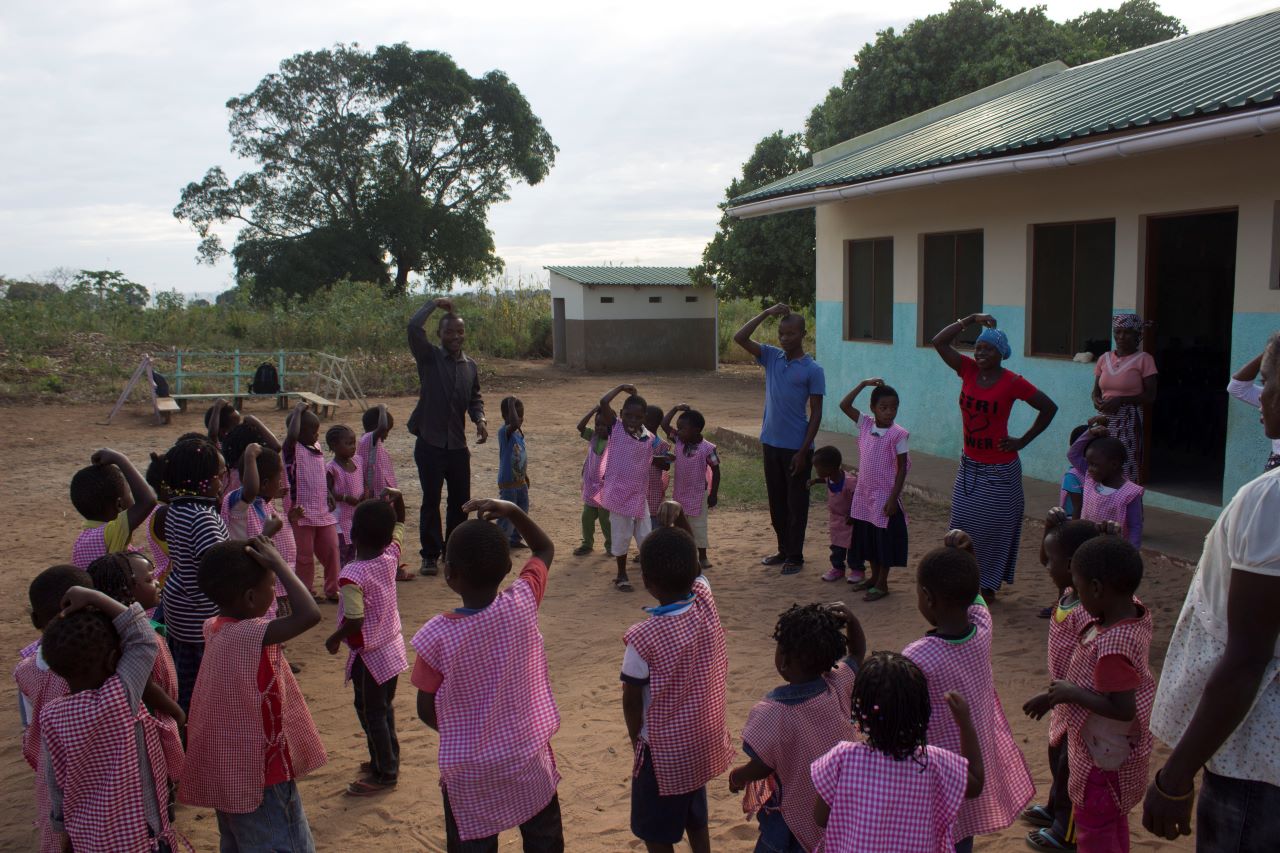
During the past 5 years, AKF-M supported the pilot initiative of the Ministry of Education and Human Development of “Integrated Development of Pre-School Children (DICIPE), having implemented the expansion of community schools in Cabo Delgado. The initiative prioritized children from low-income families in the districts of Macomia and Chiíre.
The implementation activities of this initiative were essentially centered on:
- transfer of management and supervision skills of community initiatives by central, provincial, district and local government technicians, and
- the establishment of 70 schools managed by the community - 53 in Chiúre and 17 Macomia.
Health and Nutrition
Cabo Delgado is among the provinces of Mozambique with the worst rates of chronic malnutrition and early pregnancy - almost half of children under five are malnourished and about half of girls become pregnant before the age of 18.
AKF-M, in its support to the Government, has three different interventions in the health area. Over the past 5 years, it has directed its actions towards contributing to the reduction of malnutrition in families, and to the strengthening of the health system with the aim of contributing to the reduction of maternal and child mortality, the provision of essential services health care for pregnant women, nursing mothers and children under the age of 5, as well as increasing the level of knowledge at the community level.
Health and Nutrition
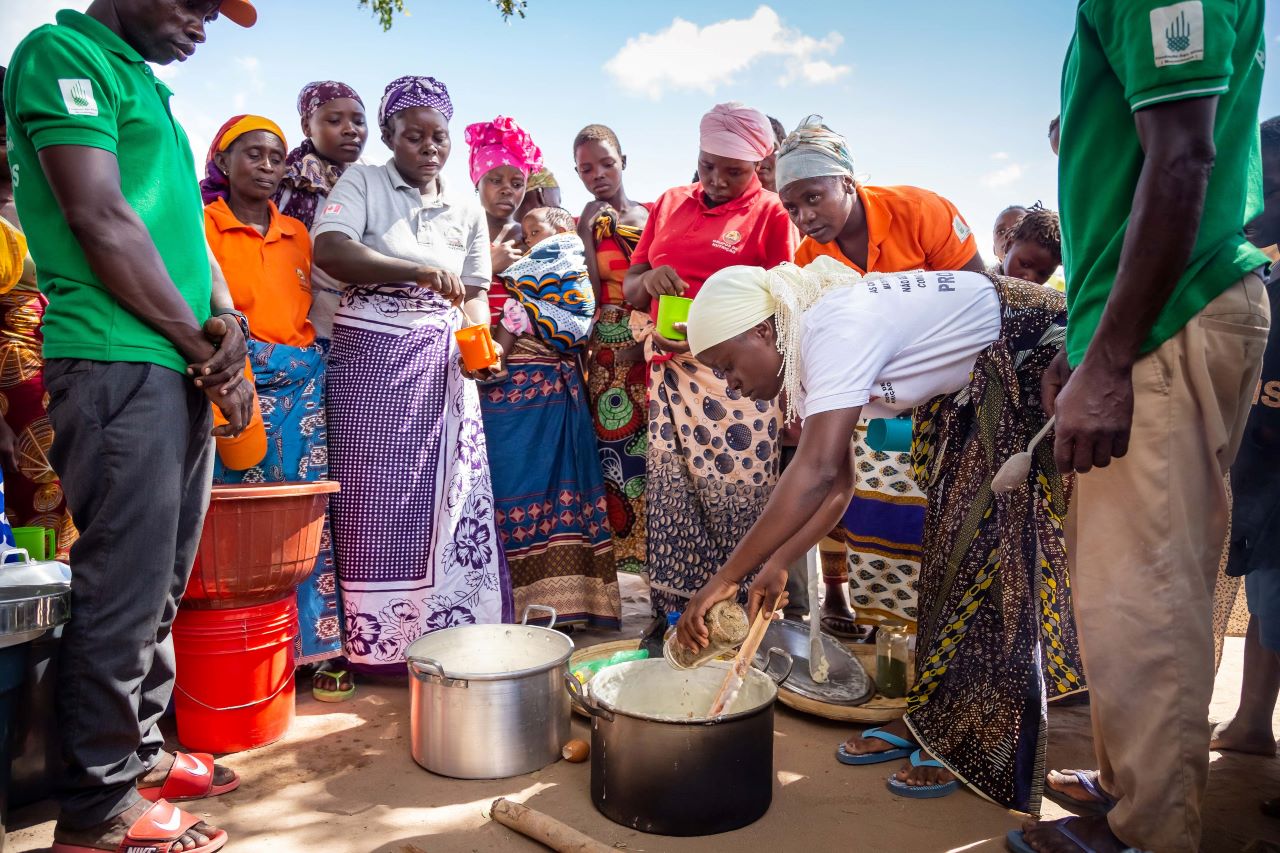
In addition to maternal and child health, AKF-M interventions in areas such as sexual and reproductive health for adolescents and girls have received attention, and a 5-year project is currently being implemented to promote the rights and sexual health of these groups. This project was initially planned to be implemented in three northern districts (Mueda, Nangade and Muidumbe), and three in the southern province (Montepuez, Balama, and Namuno), however, due to the insecurity in the northern region, work in the districts from the north had to be stopped and resources moved to the south.
Likewise, in 2018, the national HIV/AIDS and Tuberculosis response project began, aiming to contribute to the reduction of new HIV infections by 33%, from approximately 36,000 people in 2016 to approximately 24,000 people by 2020. The project has strengthened the community involvement in perception and change, with emphasis on men who play a decisive role in the process of adhering to the treatment of diseases.
The project is being implemented in the provinces of Cabo Delgado and Niassa, being in the latter province through a consortium with Associação Progresso.







